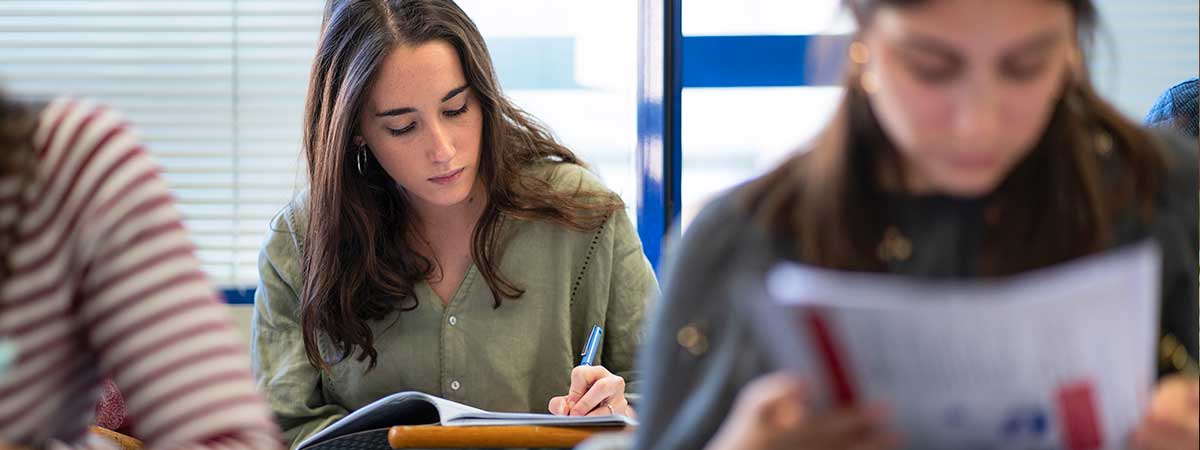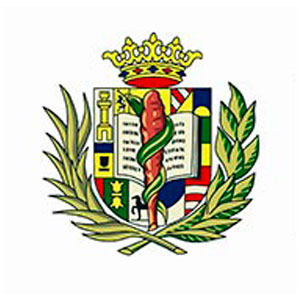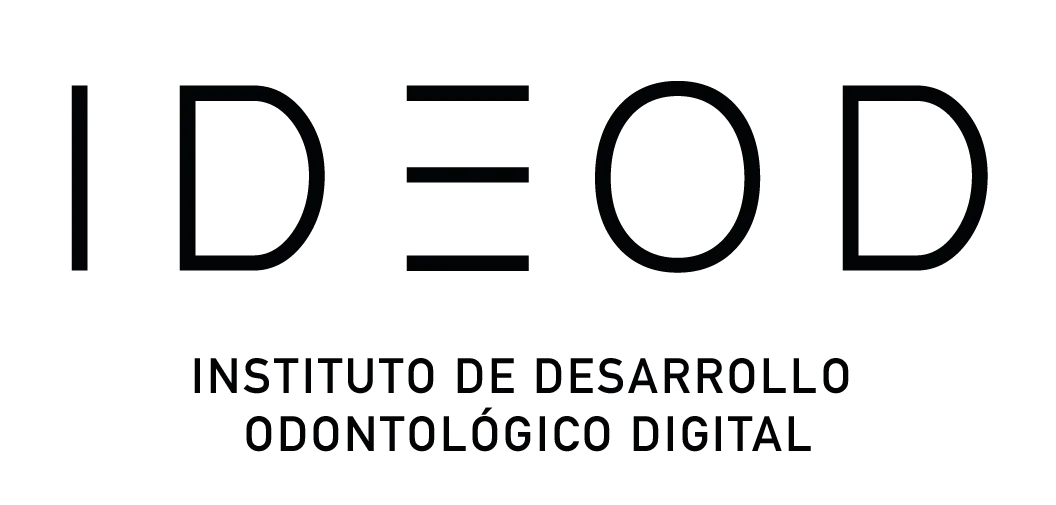Master’s Degree in Aesthetic Medicine Continuing Education

It could be considered a "specialization of specialties", since it shares common fields with Plastic Surgery, Dermatology, Maxillofacial Surgery, Vascular Surgery, Ophthalmology, among others
The aesthetic medicine market in the U.S. in 2020 was estimated at 86.2 billion dollars (71 billion euros), estimating that the growth until 2028 will be 9.8%. In the global market, minimally invasive procedures (botulinum toxin, fillers, peels, varicose veins, etc.) grow much faster. There is no specialty or specialization in Aesthetic Medicine despite its strength in the number of treatments worldwide, Spain being one of the countries that proportionally performed more treatments and in the number of indexed publications.
Focus is placed on personal improvement; with little or no invasive techniques, well-studied materials and with minimal adverse effects, light-based appliances with long years of development. All of the above makes it distinctly different from hospital specialties (MIR system).
The references in PubMed (Medline), the search engine with the largest medical database in the world, for botulinum toxin are more than 20,000.
This is the most demanded and practiced treatment in aesthetic medicine consultations around the world.
The practice of fillers follows in second place with over 15,000 results.
This master's degree is designed by professionals with a long history in the private practice of aesthetic medicine, who are well acquainted with the techniques, technologies and trends (TTT) of today's society.
Student profile:
This master's degree is aimed exclusively at professionals who have an Undergraduate or Bachelor's Degree in Medicine. The objective is to train experts and trained doctors in the diagnosis, prevention and treatment of aspects considered unaesthetic.
General practitioners interested in training in the knowledge and use of techniques and technologies for use in Aesthetic Medicine.
Specialist doctors in any of the specialties recognized by law, interested in improving the aesthetics of patients through the knowledge and development of skills of Aesthetic Medicine.
Degree:Master´s Degree in Continuing Education in Aesthetic Medicine
Center responsible:School of Life and Nature Sciences
Branch of knowledge: Health - Medical
Openings available: 18
Duration: 2 years.
Total Credits: 60 credits.
Minimum of 12 ECTS credits and maximum of 60 ECTS credits per enrollment and academic period
Academic year in which it was implemented: 2022/24
Type of Education: Blended
Academic Regulations: General student’s regulations. Credit transfer and recognition. Regulation of student participation. Common procedures for carrying out the Final Research Project
University Services: [+info]
Why study the Master’s Degree in Continuing Education in Aesthetic Medicine
Curriculum
The student must complete 60 credits
First year 20 ECTS credits
- 1 ECTS | Meaning and Importance of Aesthetic Medicine
- 1 ECTS | Methodology of Scientific Research in Aesthetic Medicine. Scientific Evidence on Obtaining Results
- 2 ECTS | Histology and Physiology of the Skin and Appendages. Dermatology Applied to Aesthetic Medicine
- 1 ECTS | Importance of Diagnostic Techniques in Aesthetic Medicine. Diagnostic Imaging Techniques
- 1 ECTS | Main Pathologies of the Adipose Tissue. Therapeutic Indications and Cosmetic Surgery
- 1 ECTS | Anesthesia in Aesthetic Medicine
- 1 ECTS | Aging Medicine. Role of Lifestyles in People's Health
- 2 ECTS | Dermocosmetics. Cosmetics and Cosmeceuticals
- 1 ECTS | Nutrition and Dietetics in the Treatment of Obesity and Overweight
- 1 ECTS | Facial and Body Mesotherapy. Intradermal therapy. Cutaneous Treatment by Biostimulation and Other Treatments of the Subcutaneous Cellular Tissue
- 1 ECTS | Approach and Treatment of Venous and Lymphatic Pathology
- 2 ECTS | Implants and Tissue Filling Materials. Injectables
- 1 ECTS | Threads for Biostimulation and Support in the Face and Neck and Other Body Areas
- 1 ECTS | Controlled Exfoliation. Superficial, Medium and Deep Peelings
- 2 ECTS | Botulinum toxin. Therapeutic Applications
- 1 ECTS | Physical Exercise and Sports as Enhancers of Results in Aesthetic Medicine
Second year 40 ECTS credits
- 4 ECTS | Lasers and Light Sources
- 2 ECTS | Facial and Body Treatment Techniques with Advanced Technology
- 1 ECTS | Genital Aesthetic Medicine: Gynecology
- 1 ECTS | Alopecia. Hair Redensification Techniques and FUE Technique in Hair Surgery
- 1 ECTS | Emergencies in Clinical Practice
- 1 ECTS | Business Analysis of the Aesthetic Medicine Consultation. Healthcare Quality Models. Management and Marketing
- 1 ECTS | Ethics in Aesthetic Medicine. Ethical and Legal Aspects
- 2 ECTS | Practical Workshop in Nebrija Classrooms
- 11 ECTS | Internship in Health Centers of Aesthetic Medicine
- 14 ECTS | Master's Final Research Project
More info about the subjects
More Academic Information
Skills
Specific SkillsUpon completion of the two-year learning process, which involves acquiring theoretical knowledge and practical skills, submitting Final Research Project, passing assessment and obtaining the Master's Degree in Specialization in Aesthetic Medicine from Nebrija University, students will be able to apply the following specific competences in their professional practice:
- Discern from an ethical point of view the weighted psycho-emotional balance of the patient, even collecting a report with a third professional opinion. It is necessary to avoid spirals of chronic dissatisfaction in certain patients whose problems cannot be solved with endless medical aesthetic interventions.
- Know the materials commonly used in clinical practice: syringes, needles, cannulas, catheters, gauze, gloves, etc. in accordance with the standards recommended by the current scientific societies of the sector, nationally and internationally.
- Know how to correctly apply local and truncal block anesthetics, according to the clinical practice guidelines of recognized and accredited Scientific Societies of the aesthetic medical sector.
- Correctly use injectable fillers: cross-linked and non-cross-linked hyaluronic acid, poly-L-lactic acid, calcium hydroxyapatite, polycaprolactone, according to the standardized protocols of scientific societies.
- Know the instructions and apply facial and body tensioning threads, according to the standards of scientific literature and accredited clinical practice guidelines.
- Know the instructions and use of botulinum toxin in facial aesthetics and in hyperhidrosis, in accordance with scientific evidence and good medical practice guidelines of professional associations of the aesthetic and dermal aesthetic medical sector.
- Know the composition, combination and applications of skin exfoliation treatments (peels), in accordance with the standardized protocols of recognized scientific societies in the aesthetic medical sector.
- Properly use the active principles used in dermocosmetics, always knowing the components and their effectiveness, of the magisterial formulation for use in skin pathology, if supported by verified clinical or observational studies.
- Know how to apply injectables used in facial and body mesotherapy and alopecia treatments, observing the most appropriate technique and proven in rigorous studies with scientific evidence.
- Learn and know how to use injectable drugs used in sclerotherapy, in accordance with protocols of good medical practices in terms of proven effectiveness.
- Learn and know how to apply the combined treatments of microfoam and laser in sclerotherapy, with instructions supported by standardized protocols in biomedical publications.
- Know the instructions and applications of carboxytherapy based on protocols of good medical-aesthetic practices.
- Learn and know how to apply light sources, lasers and radiofrequency in facial and body treatments with certified margins of efficacy, effectiveness and safety.
- Learn and know how to apply the instructions of ablative and fractional lasers Er: YAG and CO2.
- Know how to perform an Eco-Doppler diagnosis in varicose pathology as a painless and harmless practice effective to determine a bloodless diagnosis and a more appropriate treatment for venous pathology.
- Carry out a diagnosis of skin lesions by dermoscopy to be able to act from the aesthetic medical sector or, where appropriate, to refer to the specialist in dermatology.
- Acquire the knowledge and skills necessary to apply diet therapy treatments in obesity and other pathologies, with the minimum guarantees of avoiding undesirable effects of nutritional deficiencies and with a focus on food reeducation.
- Know the techniques in non-surgical rhinoplasty and/or rhinoplasty in accordance with proven protocols of scientific societies in the aesthetic medical sector.
Blended Studies
The first year of the Master's degree
The training program lasts two years, taught by a faculty of professors carefully selected based on their academic, professional, teaching and research experience.
The first year of the Master's degree includes a set of general chapters of online theoretical material.
The online teaching system will be carried out entirely through the Virtual Campus, accessible online through the teletraining platform currently in use at the University.
At the beginning of the course, the student is provided, online (email and downloadable material from the website), with the general documentation of the Master's degree, which will include:
- General information with all subjects
- General calendar.
- List of professors.
- General teaching methodology.
- Description of the type of documents that are published.
- Basic contact information, with email addresses for tutoring session and consultations.
Along with this general documentation, and also online, the student will be provided with a didactic guide for each subject, which includes:
- ailed program of the subject and the competences that the student will achieve upon finishing it.
- Details of the set of training activities, evaluation criteria in ordinary and extraordinary calls, bibliography and recommended links.
- Location and detailed mechanisms for tele-tutoring with the professor.
- Any other information and guidance necessary to follow the course.
This material will be accessible at all times through the Virtual Campus.
Each subject is coordinated by a tutor-professor, who is responsible for setting the training itineraries and providing students, through the Virtual Campus, with all the necessary material to take the subject.
The Virtual Campus for each subject is structured around a set of folders for communication, documentation, notices, etc. typical of e-learning educational projects. The platform also offers a series of fundamental tools for online learning, such as forums, videoconferencing, submission of work or document repositories for the dissemination of notes among students. Additionally, it incorporates tools such as surveys and exercises.
The teaching of the subjects is structured on training itineraries that are learning sequences programmed by the tutor based on the contents of the subject.
The tutor monitors the students' progress, knowing at all times what documents they have read and how much time they have spent on it.
The professors are permanently accessible via email with a maximum response time of 48 hours.
The didactic methodology consists of teaching sessions programmed through a calendar previously communicated to the students.
They are broadcast live online through the Nebrija Global Campus virtual classroom with lectures by the professor (supported, where appropriate, by slides and/or video) and the subsequent interaction with the students to answer questions and present clinical cases.
The student will be sent the study material for each subject through the virtual platform.
A video for each subject on the techniques used with instructions, clinical case type, for student work will also be shared with the students.
Practical face-to-face course of 35 teaching hours in a university teaching classroom equipped to carry out practices with clinical cases, simulated patients and volunteers. It will be held in a single intensive week from Monday to Friday, 4 hours in the morning and 3 hours in the afternoon, with the support of the industry, at the Nebrija University campus in Madrid.
Submission and passing a tutored research project or Final Research Project (FRP). Each student must present and pass the results of a basic, clinical or bibliographic research project related to the contents of the master's degree before an evaluating tribunal. Each student will have the help of a tutor to carry out their research project. The estimated time for the execution of the FRP is 6-9 months.
In order to obtain the corresponding degree, it will be necessary to take the theoretical contents and attend over 90% of the theoretical-practical contents taught face-to-face, pass the online theoretical evaluations, pass a face-to-face theoretical-practical exam, pass the evaluation of the internship tutor, and pass the presentation of the FRP before the corresponding tribunal.
Employability
Aesthetic Medicine is a multidisciplinary entity that uses knowledge, materials and technology for the prevention, maintenance and repair of the aesthetic aspect of people, without forgetting to promote healthy habits in terms of general well-being.
The need for quality academic training is based on the growing social demand for minimally invasive medical-aesthetic treatments, which do not require recovery times that interfere with the normal social and labor activity of people. It is required that every doctor who dedicates themselves to the clinical practice of this discipline has the necessary training to responsibly exercise the important comprehensive care work at the service of patients who are increasingly knowledgeable and demanding of Aesthetic Medicine.
Aesthetic Medicine is developed exclusively in private medical practice and is not covered by public medicine, this has generated an important health-medical sector with an industrial component of devices, pharmaceutical industry and services, of great economic value. Many medical professionals have directed their professional activity towards this sector due to the low remuneration of the rest of the public health specialties in comparison to other countries in our context. A minimally successful medical service in this sector tends to provide professional fees that are much more favorable than the average for other specialties.
Career Opportunities
The professional opportunities of this Master are mainly:
Internships
The internships are personalized, since there will not be several students in one room, but rather the student will be alone with a doctor and a patient, and observe more than 200 types of treatments, and be able to choose a specialization that interests them the most.
They are carried out exclusively in clinics in Madrid that offer 100% of the treatments for aesthetic medicine, that is, those based on injectable techniques such as Botox, peeling, fillers, etc., and those that use the latest technology such as high frequency, all the types of lasers, cryolipolysis, pressotherapy, etc.
This master's degree offers a great opportunity to observe all the treatments in the clinic for 40 hours, and in a single week.






